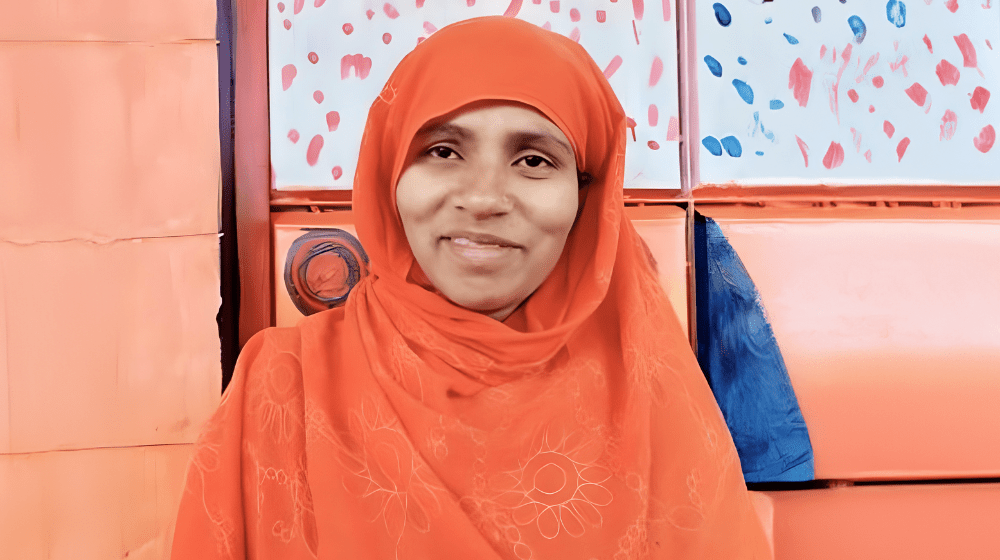I am Amina, a 30-year-old Rohingya woman, currently residing in a refugee camp in Bashanchar, Noakhali district, Bangladesh. Here in the camp, I participated in a Female Caregiver’s Session at the Adolescent and Youth Centre. Out of the sessions offered to female caregivers, the one I found most impactful was “Adolescent Girls’ Development.”
Through this session, I gained valuable insights into creating a more interactive family environment and the importance of nurturing relationships with adolescent girls. These relationships play a crucial role in both their personal development and the well-being of our families and children.
Before attending the session, I had no idea how to discuss menstruation with my daughter. I didn't know what materials to use, how to use them, or what practices to follow to ensure proper hygiene. Like many, I used old clothes during my periods without understanding how long to use them or the importance of cleanliness and proper drying techniques. The idea of menstruation was a source of shame for me, preventing me from sharing my experiences with family or friends.
The sessions taught me the importance of proper menstrual hygiene management. I learned to view menstruation as a natural and manageable part of life, rather than something to be ashamed of. Now, I am equipped with the knowledge to guide my 10-year-old daughter as she approaches the onset of her menstrual periods.
In the sessions, I was surprised by how much I learned. Each session was vital for improving our family life. After the sessions, I began to have a supportive relationship with my daughter, encouraging her to trust me and share her experiences without fear or shame. We started discussing the physical changes that occur during menstruation, the importance of using sanitary pads and panties, and how to reduce menstrual pain with hot water.
I also gained practical tips, such as the need to change sanitary pads every 4-6 hours and dispose of them properly to prevent the spread of germs. This knowledge has empowered me to educate not only my daughter but also neighbors and the community about menstrual hygiene, ensuring a healthier and more supportive environment for all.
-----------
The impact of menstrual health education extends beyond individual families to the broader community. By participating in these sessions, women like Amina are not only better equipped to manage their own menstrual health but also become advocates for change within their communities.
UNFPA, in partnership with KOICA, the Government of Japan, and implementing partners, continues to provide crucial support and education to Rohingya women and girls in Bachanchar. These initiatives are essential in ensuring that every woman and girl has access to the resources and knowledge they need to manage their menstrual health with confidence and dignity.


